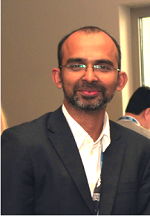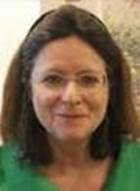
Dr Bapon Fakhruddin
The fourth Pacific Meteorological Council and second Pacific Meteorological Ministers Meeting (PMMM) was held in Honiara, Solomon Islands, 14-17 August, 2017.
Dr Bapon Fakhruddin’s presentation on end-to-end impact based multi-hazard early warning systems and disaster loss data collection for risk assessment, beginning with community ownership and engagement, was exceptionally well received. More
Disaster Risk and Resilience Roundtable, 19 June 2017, Wellington, New Zealand

Professor Virginia Murray
The Global Platform disaster loss data working session reinvigorated a high level roundtable followed a seminar on Global experiences on managing disaster risk – rethinking NZ’s policy approach by Elizabeth Longworth (ex UN Office for Disaster Risk Reduction . The roundtable emphasized to strengthen risk governance system of New Zealand. There is a very strong business case to be made for investing in disaster risk reduction. It has been estimated that an annual global investment of USD 6 billion in disaster risk management strategies would generate USD 360 billion worth of benefits in terms of reducing risk. On that basis, New Zealand might expect a return on investment of 60 times for every dollar spent on reducing disaster risk. In terms of creating shared value, investment in disaster risk management has co-benefits of strengthening resilience, competitiveness and sustainability.
The estimates for direct losses are considered to be perhaps 50% under-reported due to the pervasive nature of smaller scale, localised and recurring disasters. It is concerning that, internationally, the mortality and economic losses from extensive disaster risk are trending upwards. For New Zealand and its Pacific Island neighbours, climate change will magnify disaster risk and increase the costs. With the New Zealand economy heavily reliant on the agricultural sector, it is particularly exposed to weather-related events.
In the same way that New Zealand’s approach to social investment requires improved data and analysis, so too does the production of NZ-based risk information and integrated databases. Greater sensitivity as to the causes and consequences of disaster risk could strengthen accountabilities as to disaster impacts.
A modern-day approach to risk governance also requires greater inclusiveness and transparency. New Zealand needs to pursue an ‘NZ-Inc’ approach. The nature of disaster risk necessitates a whole-of-government response. Dr Bapon Fakhruddin attended the roundtable as an expert.
Workshop on developing a disaster loss database for New Zealand, 28 September 2017
MCDEM will be holding an initial all day workshop on 28 September to discuss all elements of the Loss Database Project. 5th Global Platform for Disaster Risk Reduction (DRR) was held in Mexico between 22-26 May 2017. The Platform was hosted by the United Nations Office for Disaster Risk Reduction (UNISDR) and the Mexican government to support the continual progress assessments of the Sendai Framework (SFDRR) implementation. The New Zealand delegation was led by Special Envoy for Disaster Risk Management (Philip Gibson, MFAT) accompanied by officials from MFAT (1) and MCDEM (3), plus a wider NZ Inc. delegation of 20 which comprised representation from academia, NGOs, local government and private sector providers.
Following the Platform, a number of key pieces of work are in progress, or need to be considered to give effect to the Framework, put priorities into action and report on the Global Indicators. Of note, these are:
- Finalising the National Disaster Resilience Strategy
- Developing the concept for a National Platform for DRR
- Developing a National Disaster Loss Database and routine disaster loss reporting
- Project to develop better methods of pricing risk and forecasting losses
The first project MCDEM wish to seek your engagement on is the Loss Database. This is something given consideration to in the past, but is now critical due to its significance to future Sendai reporting. Unlike previous reporting on the Hyogo Framework for Action that focussed on qualitative data on inputs and outputs, Sendai reporting is focussed on outcomes, i.e. losses from disasters, and whether seeing a downwards trend.
ISCRAM Asia Pacific 2018 Conference, Wellington, New Zealand
Dr Bapon Fakhruddin and Professor Virginia Murray will be chair a session on disaster data Issues for situational awareness in the ISCRAM Asia Pacific Conference in late 2018 (http://www.confer.co.nz/iscramasiapacific2018/)
